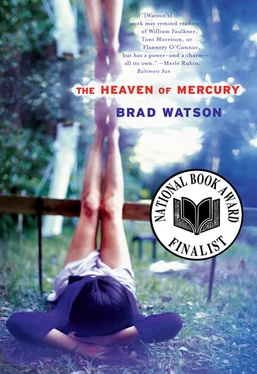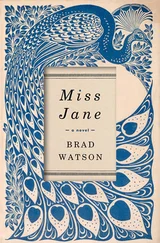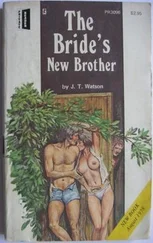One of the most beautiful aspects of the novel is the way you capture the thoughts of older people, and the physical aspects of aging. You’re not such an old guy yourself…how did you research that?
In the company of old people, listening to them, watching them. And by being something of an old soul, myself. I’m a cranky old man in a middle-aged body. I always loved and respected my older relatives, though, loved to listen to them talk, tell their stories, vent their anger over long-held grudges and disappointments. Most of my older relatives — though not all — were cheerful and bright, but they all had some tough stories. These people were the most alive of all the people I knew; they lived more in the moment than young or middle-aged people, even though they loved to revisit the past. The spoke directly, they told the truth and didn’t care about the consequences. They didn’t have time for polite lies, anymore. I loved that. If I could get away with acting like an old man all the time, I would.
So your grandmother was a model for Birdie Wells Urquhart — how do you think she’d take to your publicizing her secrets this way? If she is watching from heaven, aren’t you in trouble?
Unlike my grandmother, I don’t subscribe to the notion that people go to a heaven that is much like earth (conceived apparently by an earth-bound mind), only grander and less troubled. (See answer to question one, above.) But if Mimi’s spirit is with me, in some sense, I sense humor as well as admonishment. She used to tell what she considered awful things about herself, as well as others, and be horrified by them, and then laugh at them. Maybe you live to be ninety-three by not being so resistant to the things that happen in life, I mean by accepting them and moving on. She, for one, did not hold a grudge, even against those who had mistreated her terribly, and did not excessively mourn her losses, until her last years, when she grieved most that she was still alive while her children had already died. She complained about that, thought she was living too long. I loved her very much, still do, and she knew that I loved her.
Besides, the secrets she told me weren’t really secrets, and I invented the rest. Mimi didn’t read fiction, but I’ll never forget what she said to me after reading my first published story, which was a little bawdy: “Well, I know you’re a good boy, anyway.” She meant, “in spite of what you’ve written.”
The novel blurs the distinctions between life and death in interesting ways — most provocatively, in a scene with the undertaker’s young son that some people might find offensive — what’s that all about?
I hope not too many people find Parnell Grimes’s latent necrophilia (as I call it) offensive. Parnell knows his desire is wrong, perverted, grotesque, and he seeks some kind of salvation from it, which he finds in his wife, Selena (who understands him and does not condemn him). And I tried to write about Parnell’s troubling desires in a way that shows him to be a fundamentally good man, one of the most compassionate people in the novel, in spite of his problem and being a kind of weird, goodhearted fool. In a strange way, his great love for other people, his compassion, contributes to his problem. It’s a darkly comic vision, of course, this character. I enjoy certain kinds of morbid humor; I can’t be alone in that, in a country that made Edward Gorey a bestseller. Maybe Flannery O’Connor would have written about such a character, had she been born thirty or forty years later, and done a better job of it. I don’t know.
Concerning the scenes when the world of the dead and the living merge in other ways, such as when Finus sees his dead wife in a chair in his bedroom, or hears her voice through a stray cat in the graveyard, I was playing with some sort of notion about the ephemeral nature of earthly life, I think, and the sense that we commune in all kinds of ways with the dead, ways that aren’t spooky or supernatural or weird; they’re with us always, in a real sense, if we cared about them.
In the scenes with Birdie after her death, I like to think a reader can see her spirit travel as either real or as a moment of compressed time and brain travel in the moments between life and death, the moments when the body has given up and some sort of residual energy still exists in the brain. A hugely imaginative time, I would think.
How exactly do you describe the relationship between your two main characters, Finus Bates and Birdie Wells? If this is a kind of love story, why didn’t you let them get together and live happily ever after?
I think all too often people don’t end up with the love of their lives. They end up with someone they love okay and they stick it out, or they don’t. Finus and Birdie never get together, and to some extent it’s a result of the bad timing, the odd luck of timing, that so often keeps people who seem right for each other apart. We’ve all had it happen: a love at first sight that tears our hearts out instantly, but we’re committed to someone, or they are, and we don’t act. Same with these two. It’s a shame, when that sort of thing happens. But there usually are shameful consequences, sometimes ruinous, that follow if we do act.
I didn’t have a real vision of Finus and Birdie as a couple, a vision of what their lives together would have been, until one night late in the time I was revising the book. I’d met some friends at a nice restaurant in Cambridge, and this older couple kind of shuffled up to the hostess to inquire about a table. They stood there a while, waiting, holding hands. They were older, and kind of frail, but there was something obviously beautiful about them, individually and as a couple. I had the strongest sense that these people were as much in love as when they first fell in love, and it seemed to me that they were in a sense Finus and Birdie. It added something, I think, to the last draft, seeing that couple.
DISCUSSION QUESTIONS
Barry Hannah, in a comment on Brad Watson’s first collection of stories, Last Days of the Dog-Men , wrote: “Watson’s people are the wretched dreams of honorable dogs.” In this, Watson’s first novel, what seems to be his view of human — and animal — nature?
Would you describe Watson’s writing as earthy or lyrical? What characteristics dominate in his prose and how do they affect his portrayals of individual characters? How do elements of his style influence the book’s intermingling of the living and the dead? Does Watson’s prose evoke or suggest a larger world view?
How does Finus’s radio broadcast set the stage for the rest of the novel, in terms of both narrative and theme? Did Finus’s cosmic reflections strike you as profound or eccentric?
Some of Watson’s characters seem to have an intimate connection with a world or dimension beyond the strictly material world of the present. How does this affect their ability to relate to the “real” world? What is it about Watson’s prose that makes this “other” world seem normal and understandable to the reader? Would you describe this other dimension as magical or spiritual in a conventional sense?
Time, memory, and desire are traditionally construed as elements of earthly existence that are no longer relevant in the afterlife. Would you say that Watson turns that idea on its head? Is there some way in which time, memory, and desire in this novel are elements of a “life beyond” that surrounds us even while we’re living?
Is this identifiably a “Southern novel”? Why? How is the Southern literary tradition distinct from writing from the rest of America? Is this related to the issue of race?
Did you find Watson’s portraits of Vish, Creasie, and Frank offensive? Why, or why not? Is the reader invited to see these characters differently from the way the white characters in the book see, or don’t see, them? Do we get any idea of how they might see themselves?
Читать дальше












